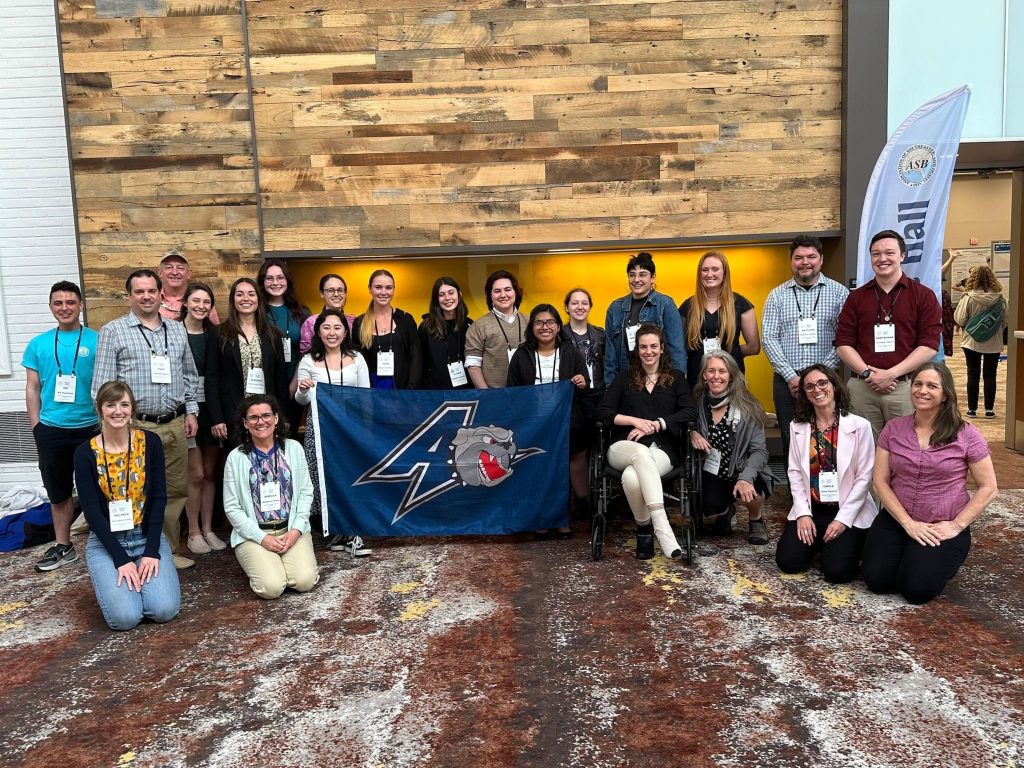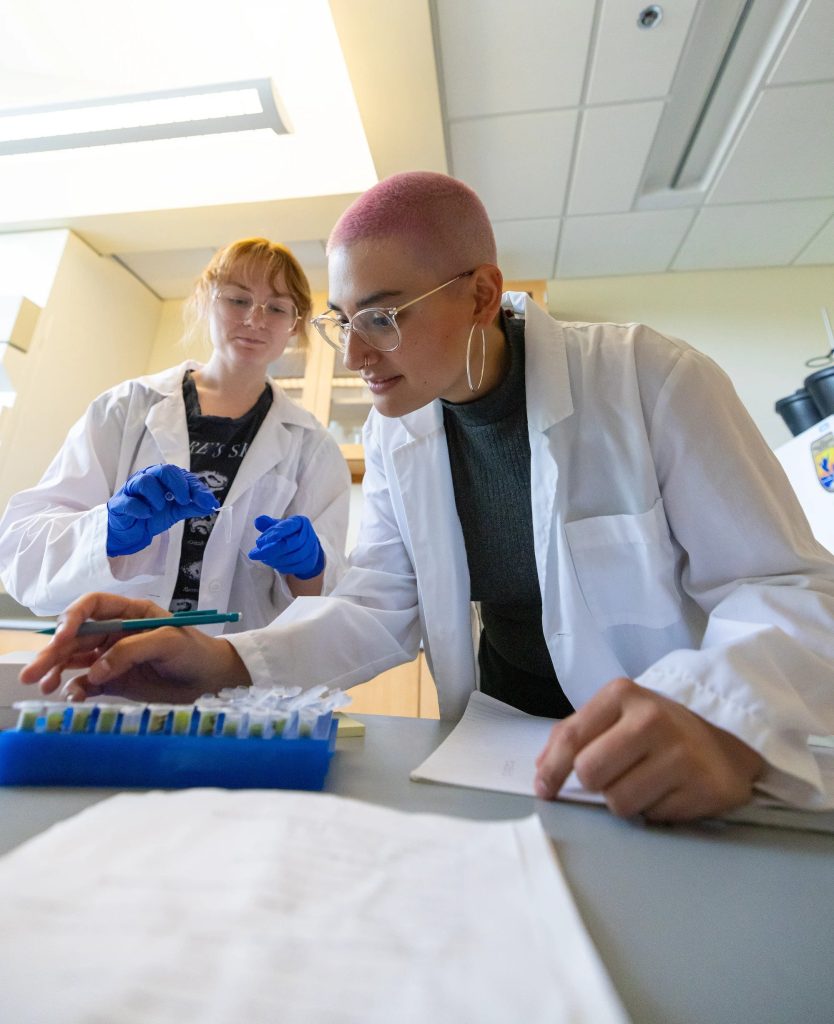The biology major at UNC Asheville provides a broad background for students who seek awareness of the living world and their role in it, as well as preparatory training for health professions, biotechnology, graduate schools, or science education careers.
Why Study Biology at UNC Asheville?

Biology Research & Scholarships
You can receive scholarships and conduct research alongside faculty through the North Carolina GlaxoSmithKline Foundation Scholars Program or the UNC Asheville Biology Scholarship. You may also be a part of the Undergraduate Research Program (URP) or engage in collaborative research projects with faculty, some of which include work that aims to monitor and remove invasive non-native plants from campus property. You’ll also have the opportunity to publish scientific papers or present your research at conferences alongside your faculty mentors.
Student Spotlight
Learn Biology Outside the Classroom
Hands-on learning is a big part of UNC Asheville’s liberal arts approach to education, and we encourage learning and discovery by featuring investigative class, lab, and/or field experiences within all courses offered in the Biology Department.
The Literature Club welcomes all students interested in the study of literature and language. We meet to participate in the exchange of ideas as well as sponsor visiting writers and literary scholars to speak on UNC Asheville’s campus. The club also helps arrange student-faculty parties to advance the camaraderie of the department and further develop mentoring relationships.

Events & Industry Partnerships
Outside the classroom, you have the opportunity to participate in professional conferences around the country, undergraduate research experiences at other universities or research centers, or even take summer courses at the Highlands Biological Station in Highlands, NC.
The Biology Department periodically invites a professional scientist or other luminary to speak to biology faculty and students. Topics vary widely but are of general interest to biologists. Many of the speakers come from institutions wishing to attract graduate students, so you may be able to make some helpful contacts and become informed about regional graduate programs in this informal environment.

Internship Opportunities
It’s a good idea to look for summer jobs or internships that will give you practical experience in your field. This can help you stand out to employers or graduate programs when you’re applying for jobs or further education. Your faculty will help you find opportunities outside of campus that will enhance your skills and knowledge. UNC Asheville biology majors have participated in summer research fellowships at institutions from the University of Hawaii to Harvard University.
Meet the Faculty
We are a small department with gifted faculty specializing in vertebrate and invertebrate zoology, botany, herpetology, ecology, evolution, animal behavior, human anatomy and physiology, animal and plant physiology, cellular and molecular biology, microbiology, and genetics.
Biology Degree Careers & Outcomes
The bachelor’s degree in biology is designed in part for individuals who wish to pursue careers in the health professions such as medicine, dentistry, physical therapy, pharmacy, veterinary medicine, or allied health professions. Graduates may also pursue graduate study to advance within the biology or education fields, and students often matriculate straight into Ph.D. programs. According to the U.S. Bureau of Labor Statistics, careers for those who hold a biology degree are expected to increase from anywhere between 2% to 17% depending on the position.
UNC Asheville students have gone on to graduate programs in ecology, evolutionary biology, microbiology, molecular genetics, and more at schools such as Washington University in St. Louis, University of Wisconsin Madison, and Michigan State University. Other biology graduates have become lab technicians, physician assistants, clinical researchers, genetic counselors, data scientists, and biotech scientists.
Related Programs
Earn a Biology Degree at UNC Asheville, a Campus Wild With Possibility
By earning your bachelor’s degree in biology at the University of North Carolina Asheville, you’ll set yourself on a path of exponential growth. Here, you’ll learn in an environment designed to help you achieve your goals and be supported and encouraged by faculty who push you to reach your full potential.
Contact Us
| Biology Department |
| Phone: 828.251.6444 |
| Email: jrasnick@unca.edu |





















